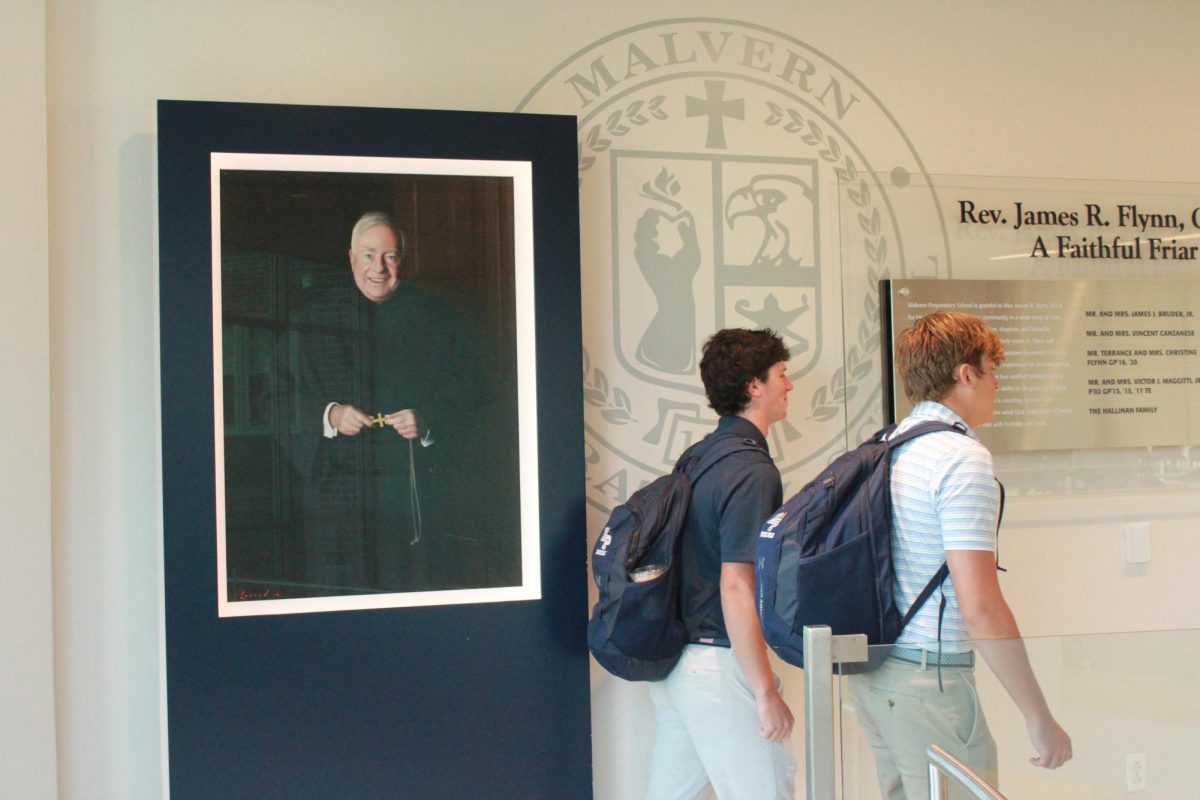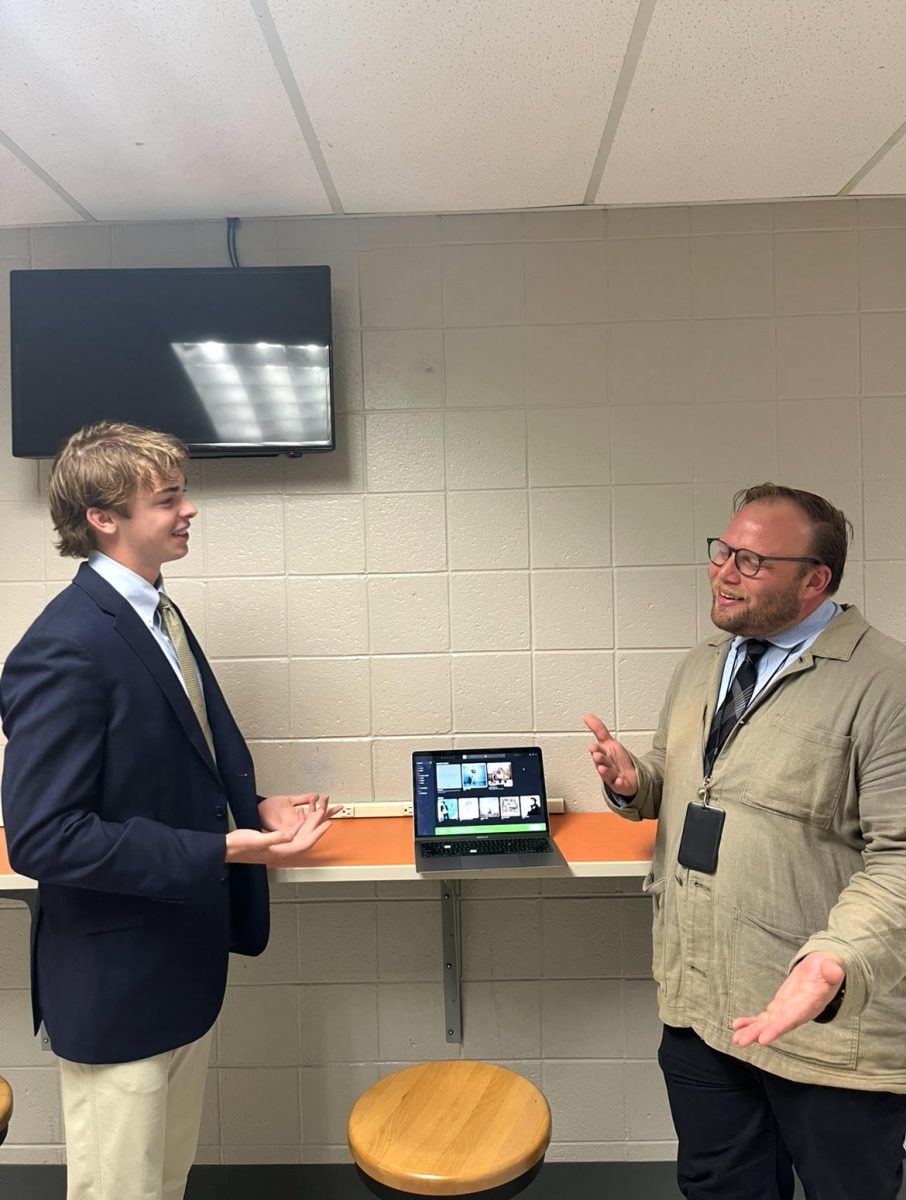The 2024-25 academic year marked the beginning of a new structure for Malvern’s academic week, most prominently on Monday. This year, students return to their homerooms during Community Time to have some structure in place as the week begins. Off-term classes also meet on Mondays, giving the remainder of the week and their intensive term classes a continuity that last year lacked. This change is aimed at creating an intentional, meaningful pause at the beginning of the week to set up students and teachers for success as the busy school week approaches. Similarly, the non-intensive, or bridge day, classes being moved from the middle of the week to Monday will effectively reduce the arbitrary switch of classes with the hope of promoting more consistency, benefiting everyone.
Mr. Dante Coles, Upper School Social Studies Teacher, shared his thoughts as an 11th Grade Student Academy Leader on these adjustments. He emphasized the importance of preparing students for the independence they will face throughout their academic careers as well as how they can better manage their time and take advantage of this opportunity.
“As far as the student body, I think it’s going to give them guidance and tools on how to take advantage of that time because they’re going to have this time in college. A lot of people will get caught up in having all that free time and not doing what they’re supposed to do. So I feel that if we’re going to do this [bridge day] on Mondays, we should show the majority of students the best way to occupy their time like talking to a teacher, getting work done, checking emails, etc.,” Coles said.
Mr. Coles expresses the potential positive impact of the new structure on students. He anticipates notable improvements as students learn to take advantage of their time, promoting personal growth and better skills.
“I feel that we should see improvement. We should see many kids taking advantage of that time, [leading to] growth in the students [and] showing them about time management and how they can use that to their benefit,” Coles said.
Mr. Coles mentioned Malvern’s ingenuitive approach to implementing new programs. He noted the importance of involving the entire community in the process as well as valuing feedback from faculty and students.
“I like what Malvern does. They bring up different programs, and they trial and error with it. But they also ask the entire community [and] different departments [their feedback]. They ask the faculty to ask students what their thoughts are and how they feel about it. To me, that’s huge — being in a workplace like that,” Coles said.
The Head of Academics at Malvern Prep, Mr. Tom Pannulla, provided insight into the decision-making process behind the new schedule changes. He acknowledged that change can be difficult and uncomfortable, but the aim is to create a more productive and consistent school environment for students.
Mr. Pannulla explains how the new changes developed from continued discussions with faculty and staff. He pointed out the challenge of helping students use time effectively as well as the importance of providing strategies for managing it.
“[The idea] originated towards the end of last year, and it was through continued conversations with both faculty and staff administration about how we continue to utilize that time in the middle of the day as best that we can for students. How do we help to continue to give students strategies for how to use open time? It’s a concept that seems easy enough, but can actually be very difficult for some students,” Pannulla said.
Mr. Pannulla outlined the purpose of designating a specific day for structure. He explained that this approach allows students to use their free time productively, emphasizing goal setting and communication as key components for starting the week successfully.
“What we wanted to do was take one day out of the week to help with that and give some structure to it. So we could eventually have students start to realize how some free time can be used best. And so we’ve given some guidelines on what you can do during that time. So this helps in a couple of different ways. [First], it’s the start of the week, so you get this idea of setting up your week for success and looking at what you have going on throughout the week and hopefully making plans to accomplish those tasks. So it’s really about goal setting and communication. I think those are the two main frameworks of that day,” Pannulla said.
Mr. Pannulla acknowledges that any change requires an adjustment period. He understands that students may have questions about the new structure, but they will, over time, find their flow.
“Change of any kind is going to take some getting used to. I’m sure students have probably wondered, ‘Why are we doing this? How is it helpful? Is it successful?’ And so I think that that sense of change in general is hard for people at times, but I’m hoping people get into that rhythm. By doing this and goal setting, [you will notice that] the rest of the week is actually much more open for you because you’ve reduced that cognitive load. So it actually starts to, hopefully, pressure reduce some things there for students,” Pannulla said.
Mr. Pannulla spoke about teachers setting aside time to support students in developing these essential skills. He believes this time is valuable for both students and teachers, despite the challenges that may come up.
“There is some time that teachers are giving over in that sense. But the goal for us as a school, as adults on campus, is to help students through that and to teach students those skills. So I think it’s time well spent. It’s a time give-back for teachers in terms of having to be in that specific space for that period of time. I’m sure that that is a challenge that we’re all trying to work through and figure out. The good news, though, is that we’ve said from the beginning that if any student needs to meet with a specific teacher during that time, they can still do that,” Pannulla said.
Mr. Pannulla notes that he has yet to receive extensive feedback from the student body; however, the several responses he has gotten indicate that the new program has been beneficial for some so far.
“I haven’t received a lot of feedback, which sometimes can be a good thing, but I do know that it certainly has helped some people. Some students have actually told me very outwardly that it’s a good moment for them because they have been able to get some things done. But I think I’ve also gotten feedback on the other side, which [is expected with] a new program. We’re not bound to get it perfect on the first try. We just have to continue to make sure that that time is used well,” Pannulla said.
Mr. Pannulla highlighted the importance of having a dedicated time and space for students to engage in meaningful experiences. He pointed out that simply having free time isn’t enough; students need to be intentional.
“There’s so many outer-layer experiences that students can hone into, but, typically, you need that time and space to focus on [schoolwork]. Having a block of time that’s free doesn’t mean that that’s when you’re going to do it. You have to be intentional about when and how, and that’s the goal of Mondays,” Pannulla said.
Mr. Pannulla discussed the extensive research conducted over the past year by Malvern administration. He also mentions that a major point of emphasis from the feedback was the difficulty students experienced in transitioning on Wednesdays, which somewhat disrupted the overall flow of the week. He is aiming for more consistency in the schedule to improve effectiveness and productivity.
“This was a big research study from myself and the faculty academy. Last year, we met with students of all grade levels throughout [the school year]; we gained some really, really great feedback from them and teachers as well. The biggest thematic feedback that we got amongst all those parties was that Wednesdays were such a tough day to change gears. You went through two days of intensive class, and then you took a break. That’s what it almost felt like for people. Then you had to revamp for Thursday and Friday. It just never felt like it was consistent. So consistency seemed to be the biggest key factor in terms of why last year might not have been as effective as we hoped,” Pannulla said.
Mr. Pannulla emphasized the benefits of moving the bridge day to Mondays, dedicating it as a goal-setting day. He believes this shift will better prepare students for their intensive classes, promoting a focused mindset for the upcoming week.
“Moving into Mondays — it has helped in a lot of ways as this day that we’re designating as a school. This is a goal-setting day, and you can look ahead to make sure things are set. For your intensive classes on that Monday, you can really feel good about going through the rest of the week in this intensive mindset” Pannulla said.
Mr. Pannulla noted that the key benefit of the new schedule change is consistency.
“The biggest benefit has just been that consistency, [having] four days in a row of those intensive classes has really helped both teachers and students. That’s the feedback that [I’ve gotten] so far. So I think it just enables students to lock in a little bit better,” Pannulla said.
Ultimately, the new schedule structure for the 2024-25 academic year at Malvern Prep represents a significant step toward promoting more consistency — an aspect that last year lacked. The hope of this new change is to help students be more intentional and meaningful about their goal-setting, enhancing overall productivity and effectiveness. Mr. Pannulla noted that while transitioning to this new system may be difficult at first, “helpful feedback makes change.” So, it is important for everyone to share their thoughts, feelings, and concerns as Malvern experiments with new ways to benefit student learning.












